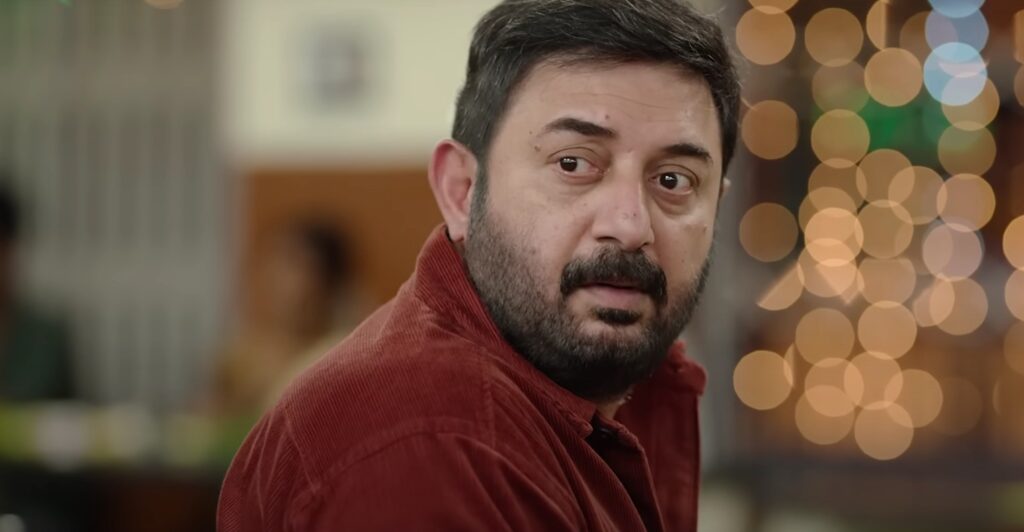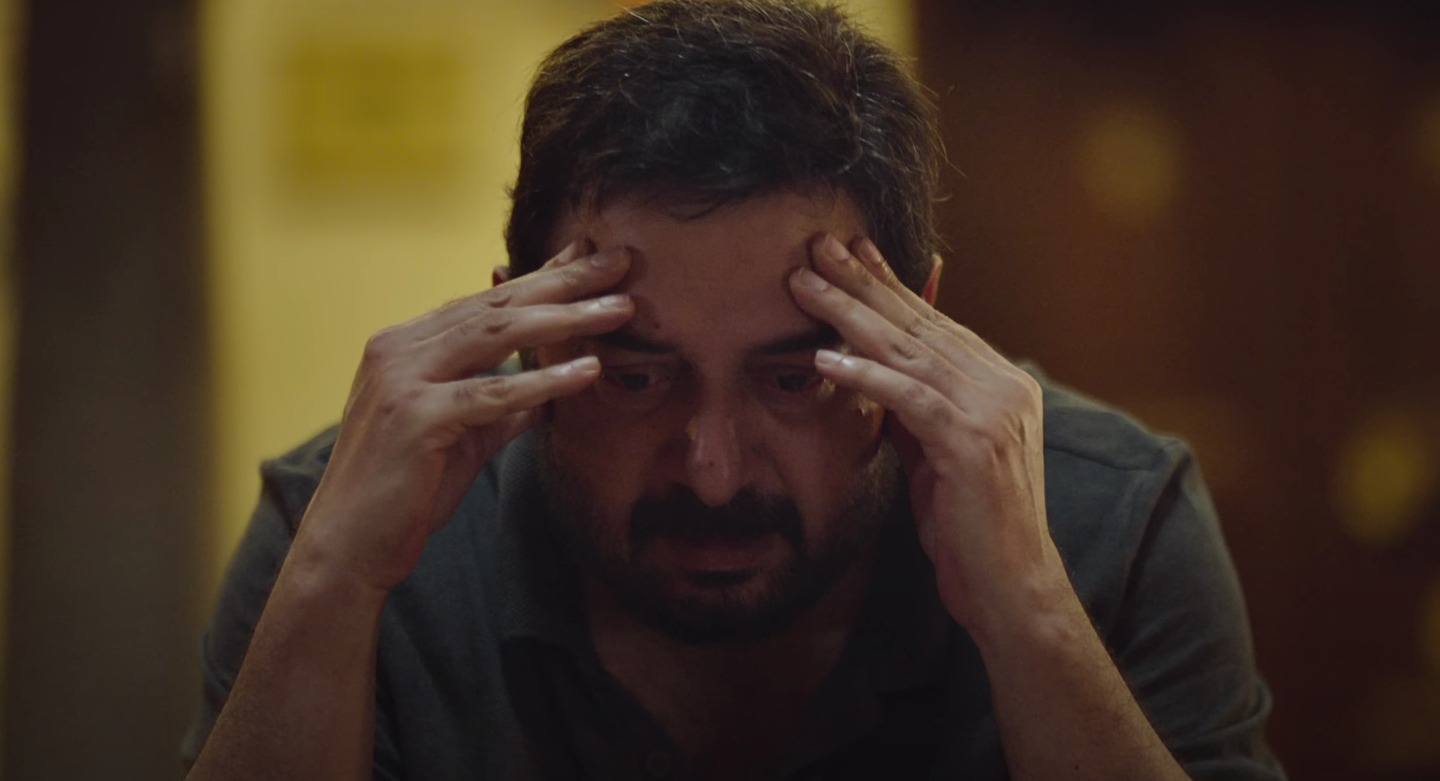“My dear children, there is nothing higher and stronger and more wholesome and good for life in the future than some good memory, especially a memory of childhood, of home. If a person carries many such memories with him into life, he is safe to the end of his days, and if one has only one good memory left in one’s heart, even that may sometime be the means of saving us” – Alyosha’s speech at the stone in The Brothers Karamazov.
When Arulmozhi (Arvind Swamy) reluctantly returns to his native village to attend his niece’s wedding, memories of past scars that transformed him into a rigid person begin to unravel. This shift is triggered by his encounter with a mysterious man (Karthi) who shows an uncanny level of care for Arul – so much so that it leaves him both bewildered and annoyed. Arul attempts time and again to learn the man’s name and the reason behind his kindness, but all his efforts fail. This central conflict forms the core of Meiyazhagan, a film that is part buddy comedy, part redemption tale.
Perhaps the most engaging part of the film begins after Arulmozhi meets this mysterious man, though it takes a while to reach that point. The opening scenes, however, have plenty to adore. The wedding hall sequences, for example, beautifully portray themes of longing and family bonds.
The side characters evoke strong emotions, like in the heart-wrenching scene between Rajkiran and Jayaprakash, and the subtle portrayal of past love in a brief yet poignant reunion between Arulmozhi and his childhood lover – a scene that recalls Prem Kumar’s previous work, 96. The extended wedding sequence builds up to Arulmozhi’s encounter with his niece, who is about to be married, capturing a deeply rooted Tamizh cultural essence that feels distinct from anything in world cinema.
There are notable parallels with director C Prem Kumar’s previous work, as Meiyazhagan also delves into themes of memory and nostalgia. It brought me back to my childhood when my mother’s family would gather at my grandparents’ home to spend summer holidays together. Today, those memories seem far removed from our current reality.

The man Arul meets holds on to similar memories, while Arul wants to forget what he once loved, as a painful experience in his family has hardened his heart. Karthi brings warmth and innocence to his role, making the character both admirable and aspirational. Watching someone like him approach the stoic Arulmozhi with such affection raises an important question: can one act of kindness change a person? Meiyazhagan elegantly weaves through these questions, revealing Arulmozhi’s true nature to him like a mirror.
The film also prompted introspection. Are we living lives that our childhood selves would be proud of? Many of us go through the motions, trying to bury memories and escape nightmares like the unfaithful husband in Anna Karenina.

Meiyazhagan encourages us to be true to ourselves, instead of embodying personas society expects us to wear to fit in. It’s a tale of love and transformation, illustrating how a single act of compassion can change a person’s life. As the Tamizh literature Thirukkural teaches, love and compassion cannot be locked away; they find their way to the surface, often through our tears.
Note: There are scenes in Meiyazhagan where Karthi’s character discusses injustices, such as the Tamil Eelam tragedy during the Sri Lankan civil war and the ban on Jallikattu. However, these scenes were cut from the film’s theatrical release due to feedback about the runtime, and the shortened version is the one available on Netflix. While the film remains exceptional without them, it’s a pity that they aren’t included. You can find one of these deleted scenes on YouTube. Enjoy watching Meiyazhagan, and have a great day!

Chaitanya Tuteja is someone who enjoys sharing his thoughts on books, movies, and shows. Based in India, he appreciates exploring different stories and offering honest reflections. When not reflecting on his favorite media, Chaitanya enjoys discovering new ideas and embracing life’s simple moments.


This online service offers various prescription drugs for easy access.
Users can easily buy needed prescriptions without leaving home.
Our range includes both common treatments and specialty items.
Everything is provided by reliable distributors.
https://www.provenexpert.com/breast-cancer/
Our focus is on quality and care, with data protection and prompt delivery.
Whether you’re filling a prescription, you’ll find what you need here.
Explore our selection today and enjoy stress-free online pharmacy service.